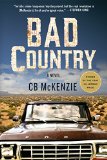Summary | Excerpt | Reviews | Beyond the book | Read-Alikes | Genres & Themes | Author Bio

A Novel
by Jonathan LethemI fell in love with Jonathan Lethem's writing when I read Motherless Brooklyn, twice. And while I have loved all of his novels since, I've really been waiting for another mystery. Happily. Ecstatically. This is it! The one I've been waiting for.
Okay. It's not quite a mystery in the traditional sense, but that is Lethem's ultimate charm. The plot isn't so much a whodunit as it is a whoisit. In this case, impromptu amateur sleuth Phoebe Siegler meets professional private eye Charles Heist, aka the eponymous Feral Detective, in a land that is way outside her comfort zone. It's the tornadic days following the January 2017 inauguration of Donald Trump, and a pre-apocalyptic panic has hit Siegler and her fellow Manhattanite liberals. The fact that Phoebe and the new President share a hometown makes her feel like New York City is no longer habitable.
Among her coworkers at the New York Times, Phoebe becomes known as "The Girl Who Quit" after throwing a whopping temper tantrum: "I conceived my quitting…I actually opened my yawp and did it, made a perverse stand on principle, stunning myself and those in range of hearing. The hate in my heart was amazing. I blamed my city for producing and being unable to defeat the monster in the tower." With limited (read, no) immediate prospects, she is open to whatever possibilities present themselves. So after Arabella, the college-age daughter of a friend, goes AWOL from her California campus, Phoebe volunteers to travel west to locate and retrieve the girl. At this point the novel becomes a cross between Lethem's Chronic City and The Wizard of Oz. Though Phoebe is not seeking a bogus Wizard so much as she is running from one.
Her first stop upon reaching the eastern confines of the Golden State is to locate Mr. Heist. (I do enjoy Lethem's Dickensian names.) Talk about backdrop shock! If New York City felt uncomfortable, this locale feels extraterrestrial. Upon arriving at Heist's address, she notes that, "On the right, behind cyclone fence, [was] a tundra of pits and heaped hills of gravel…In this wasteland the building seemed fake. It claimed a context where none was possible. I mean, human beings, ones you'd want to be or know." As a former Midwesterner transplanted to the southwestern desert I could identify with what follows. " [T]he blue," she says, "was killing me. I don't mean the blues, as in the white girl blues…It was the blue of the sky that was killing me, that and the way, across the street, with no sense of proportion or taste, snow capped peaks argued intricately with the flat galactic blue." All of this feels so foreign as to be eerily cinematic.
Naturally, once Phoebe meets Heist he becomes a character no less starkly colorful than his environs. When she tells him she's there to find a missing girl, he responds by saying, "who's not missing?" She muses, "He was prone to these low-ebb oracular remarks," and learns to like them. He's a genuine one-of-a-kind; a middle-aged man with a face like a "breathing woodcut" who cares for an opossum named Jean afflicted with a urinary tract infection and delivers survival materials to people living off-the-grid in the nearby mountains. Phoebe not only learns to like his remarks, but him too.
As the duo carefully wend their way among the feuding makeshift clans – including the warlike Bear people and peaceful Rabbit people - of the mountains, along with a variety of other off-gridders, the chapters don't flow so much as lurch from one "aha" moment to the next. Because it soon becomes clear that Phoebe is searching as much for herself as she is Arabella. At one point she explains, "The effect of being off the grid wasn't so different, I now understood, from the result of being of being too much on it. Self-invention prevailed." Eventually, she understands Glinda's words to Dorothy, that she's always had the power she needs to find her heart's desire. Phoebe's Oz is both every bit as bizarre and as normal as Manhattan. Everyone is looking for that part of themselves that they feel is missing.
I will give away no spoilers that might ruin your moment at the end but the journey is not unlike Chase Insteadman's in Chronic City or Dorothy's. Maybe it is a little more nihilistic because times, as well as the Times have changed. But Phoebe's quest and her personal evolution speak volumes about what happens when a person's ship of life comes unmoored.
![]() This review was originally published in The BookBrowse Review in November 2018, and has been updated for the
September 2019 edition.
Click here to go to this issue.
This review was originally published in The BookBrowse Review in November 2018, and has been updated for the
September 2019 edition.
Click here to go to this issue.

If you liked The Feral Detective, try these:

by Lydia Kiesling
Published 2019
A gorgeous, raw debut novel about a young woman braving the ups and downs of motherhood in a fractured America.

by CB McKenzie
Published 2016
The newest winner of the Tony Hillerman Prize, a debut mystery set in the Southwest starring a former rodeo cowboy turned private investigator, told in a transfixingly original style.
Your guide toexceptional books
BookBrowse seeks out and recommends the best in contemporary fiction and nonfiction—books that not only engage and entertain but also deepen our understanding of ourselves and the world around us.